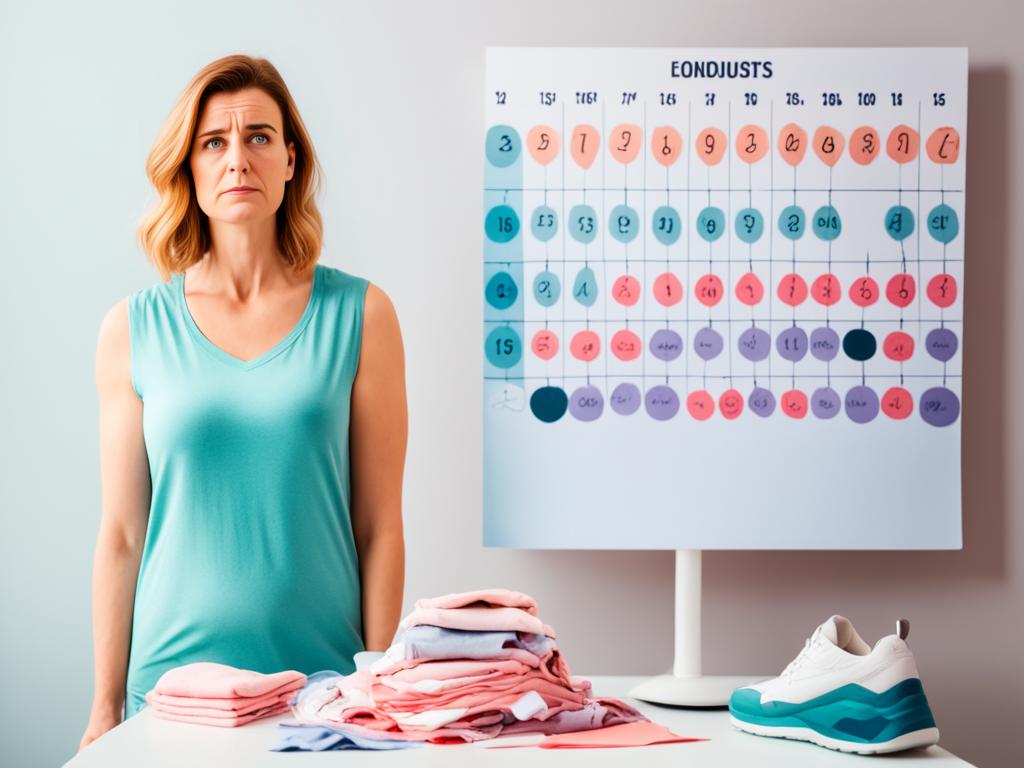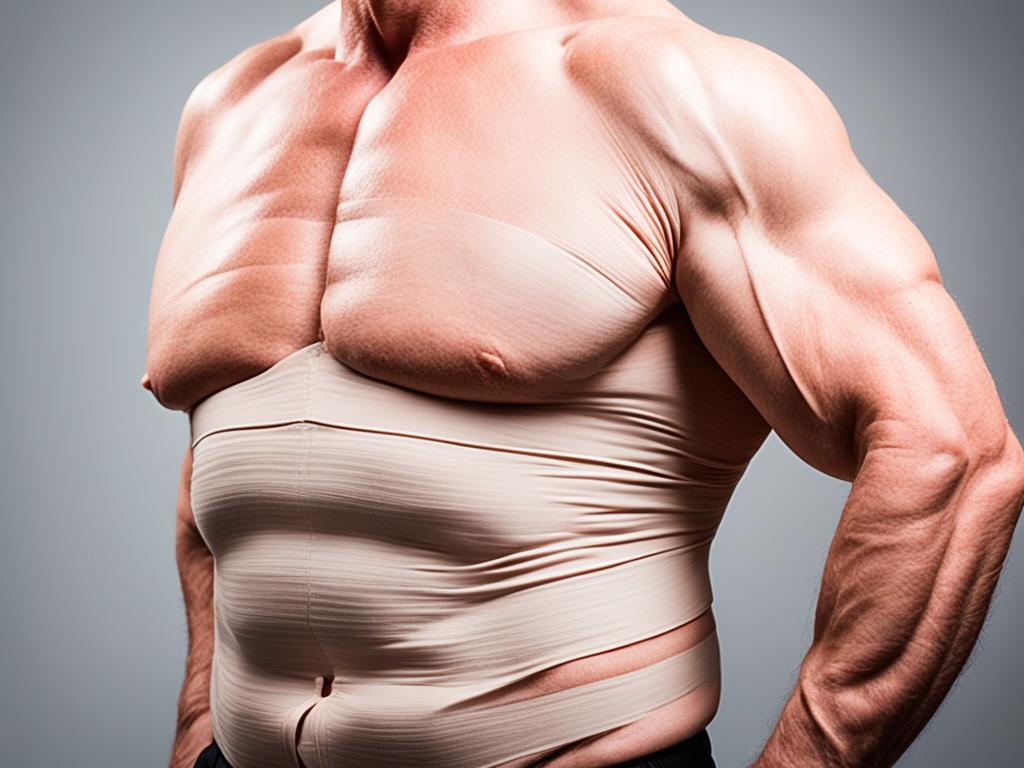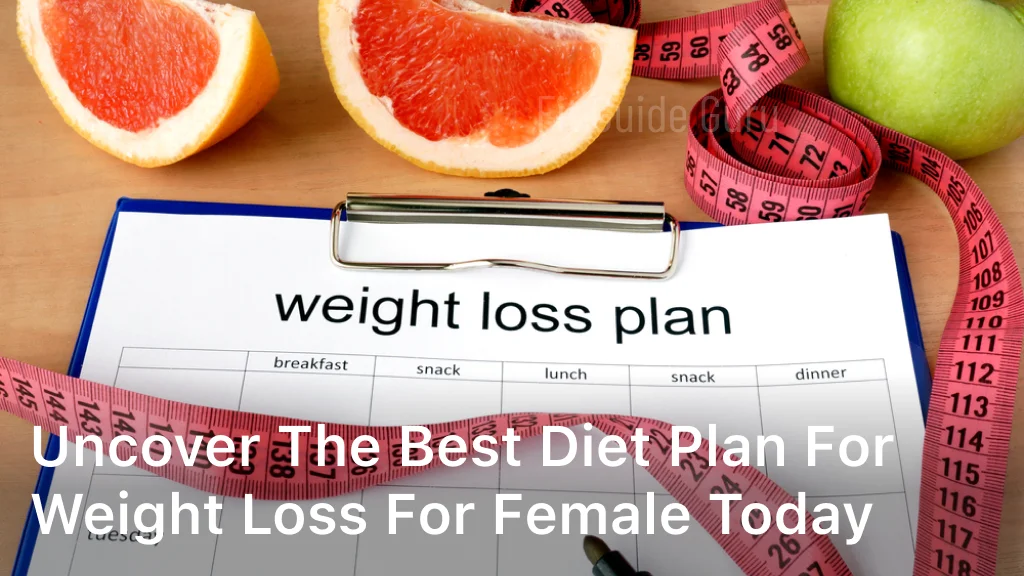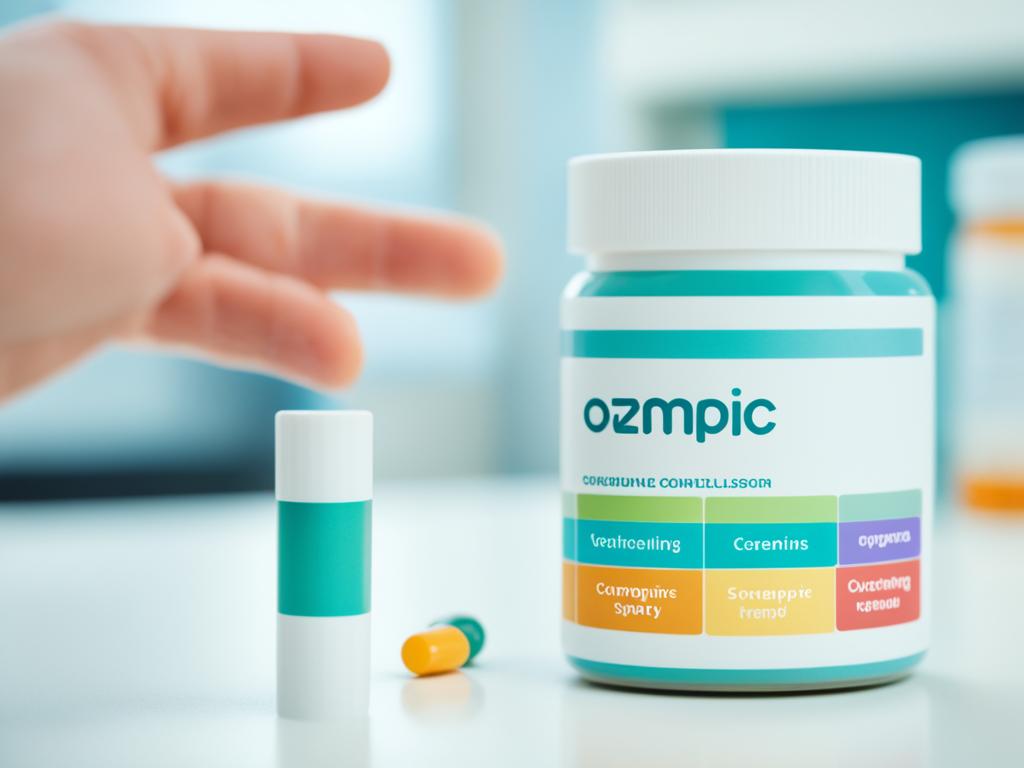How to Get Your Period Back After Weight Loss

Losing a lot of weight might make your period disappear. This condition is called amenorrhea. It can worry you because a regular period shows your reproductive health is good. Here, we will guide you on restarting your menstrual cycle after weight loss. This way, you can balance your hormones and have your period again.
Understanding Amenorrhea and Its Causes
Amenorrhea is common and linked to significant weight loss. It means not having a menstrual period. There are two types: primary, which is when menstruation doesn’t start by age 15, and secondary, when a regular cycle stops. In cases of weight loss, secondary amenorrhea is often seen.
What is Amenorrhea?
Amenorrhea means not getting your period, which can have many causes. It shows your hormones are out of balance. Possible causes include hormonal issues, fluctuations in weight, and other reasons.
Hormonal Imbalances and Weight Fluctuations
Significant weight loss can mess up your hormones. This affects your menstrual cycle. Hormones like estrogen and progesterone keep your period regular. With big changes in weight, these hormones can get thrown off balance.
Stress and Its Impact on Menstrual Cycles
High stress levels can also stop your periods. Stress affects the hormones that control your cycle. It messes with your body’s natural rhythm, making it hard to have a regular period.
Regaining a Healthy Body Weight
After losing weight, it’s key to get back to a healthy body weight. You don’t have to reach your old weight; aim for what’s right for you. Start by figuring out your ideal weight. Then, increase your food intake gradually with balanced meals. This way, you can reach a healthy weight and help your reproductive health recover.
Calculating Your Ideal Body Weight
Knowing your ideal weight is the first big step toward getting healthy again. You can use different methods like the BMI formula or the Hamwi method. These look at your height, gender, and more. Then they give you a weight range that’s best for you.
Gradual Weight Gain through Balanced Nutrition
After finding your ideal weight, slowly eat more with a balanced diet. Don’t rush or suddenly eat a lot more. Aim for foods high in healthy fats, proteins, and complex carbs. This helps your body gain weight naturally and keeps you healthy.
Restoring Hormonal Balance
Getting your menstrual cycle back is crucial after losing weight. Two hormones, estrogen and progesterone, are key. If their levels are off, it can stop your period. Knowing about these hormones and how to lower stress is important. This advice can boost your hormone health and help your period come back.
The Role of Estrogen and Progesterone
Estrogen and progesterone are vital for your cycle. Estrogen helps your uterus’s lining grow. Progesterone gets the uterus ready for a fertilized egg. If there’s too much or too little of these hormones, it causes problems with your cycle.
Managing Cortisol Levels for Optimal Hormonal Health
Cortisol is our main stress hormone. High levels can mess up your estrogen and progesterone. It can stop your cycle from working as it should. Ways to lower stress, like meditation or talking to a counselor, can fix this. They help get your hormones back in balance.
Incorporating Nutrient-Dense Foods
To get your menstrual cycle back after losing weight, eat foods rich in nutrients. Such foods have vitamins and minerals your body needs. They are also key for making and balancing hormones.
Importance of Healthy Fats and Proteins
Avocados, nuts, seeds, and fatty fish are rich in healthy fats. These fats help your body make important hormones. Thus, they support a healthy menstrual cycle.
Also, getting enough proteins is crucial. Lean meats, eggs, legumes, and dairy help make hormones. They also keep your metabolism working well.
Vitamin and Mineral Supplements for Menstrual Health
A good diet comes first, but supplements can aid in post-weight loss menstrual health. Vitamins B6 and E, magnesium, and zinc are often helpful. They can help balance hormones and ease menstrual issues.
Always talk to a doctor before taking any new supplements. They’ll give you advice that’s right for you and your health.
Exercise and Lifestyle Modifications
Finding a balance between exercise and rest is key when aiming to recover your menstrual cycle after losing weight. It’s good to stay active because it helps your body balance hormones and become healthier. But, be careful not to push yourself too hard. Mix up your workouts with strength training, cardio, and relaxing activities like yoga or Pilates. Make sure you also have times of rest.
Managing stress is important for maintaining hormone balance and getting your cycle back. Too much stress, marked by high cortisol levels, can throw off your reproductive hormones. To lower stress, try meditation, deep breathing, or doing things you enjoy. These activities can help control cortisol and aid in getting your period back.

It’s all about getting the right mix of moving and relaxing, along with stress control, to get your hormones back on track after shedding pounds. This healing journey might be slow, but stay patient. Following this advice will help you regulate your menstrual cycle and take charge of your reproductive well-being again.
How to Get Your Period Back After Weight Loss
If you’re trying the tips mentioned earlier and still not getting your period, there might be another issue. It could be a medical problem causing your period to stay away. By fixing the main medical problem behind your menstrual issues, you can start your period again.
Addressing Underlying Medical Conditions
Conditions like PCOS, thyroid issues, and stress can stop your period. It’s key to figure out with your doctor what’s going on. They might order tests like blood work or scans to find why you’re not having your period.
Once your doctor knows why, they can make a plan to help you get your period again. This might include specific treatments to fix the problem at its roots.
Seeking Professional Guidance from Healthcare Providers
Getting your period back after losing weight can be hard. It’s best to talk to doctors who know a lot about women’s health. They can be gynecologists, endocrinologists, or other experts. They are best at dealing with issues like no periods. Talking with them increases your chances of getting your period back.
These specialists will look at your health and lifestyle to suggest what’s best for you. They will also keep track of how you’re doing and help you stay on the right path. With their support, getting your period back becomes more likely.
Recovering from Hypothalamic Amenorrhea
Hypothalamic amenorrhea is a type of amenorrhea linked to problems in the hypothalamic-pituitary-ovarian (HPO) axis. This axis controls the menstrual cycle through hormones. It usually happens after extreme weight loss, too much exercise, or high stress.
Understanding the Hypothalamic-Pituitary-Ovarian Axis
The HPO axis is a key part of the menstrual cycle. It includes the hypothalamus, pituitary gland, and ovaries. These organs make and control hormones critical for ovulation and periods. If this system gets off balance, issues like hypothalamic amenorrhea can occur.
Strategies for Reversing Hypothalamic Amenorrhea
To reverse hypothalamic amenorrhea, many approaches can help. These are:
- Reaching a healthy weight by gaining weight slowly
- Lessening intense exercise and focusing on balanced fitness
- Controlling stress with relaxation, therapy, or mindfulness
- Eating well, especially fats, proteins, and nutrients
- Getting advice from doctors like endocrinologists or gynecologists for hormone problems
By tackling the causes of hypothalamic amenorrhea and following a detailed recovery plan, most people can get their period back. They can also improve their reproductive well-being.
Fertility Considerations After Extreme Weight Loss
If you have lost a lot of weight and now plan on getting pregnant, watch your ovulation and cycle carefully. It’s crucial to get these back into balance for a healthy pregnancy. This means you should keep a close eye on when you ovulate and when your period comes. Doing this will help you get pregnant when your chances are best. You can use tools like ovulation predictor kits, taking your basal body temperature, and fertility apps to track these.
Preconception Care for a Healthy Pregnancy
Making diverse kinds of lifestyle changes before you get pregnant is important for a healthy baby. Working with your doctor can help. They can check if you need better nutrition and fix any health problems you might have. It’s also a good idea to lower your stress and stay active. These steps will help you feel better overall before getting pregnant.
Thinking about fertility and acting on it can boost your chances of a successful pregnancy. Even after losing a lot of weight, there are ways to increase your fertility. This can eventually lead to a healthy pregnancy.
Staying Motivated and Patient
Getting your period back after losing a lot of weight takes time. It can be tough but stay hopeful and patient. Setting realistic goals and celebrating achievements is key. Also, having supportive friends and family boosts your mood and keeps you on the right path.
Setting Realistic Goals and Celebrating Milestones
Working to balance your hormones and restart your period requires smart steps. Celebrate the little wins, like minor weight changes or positive shifts in your cycle. This recognition keeps you energized for the big goal.
Building a Support System for Long-Term Success
Having a circle of supportive people is crucial in this journey. They can be friends, family, or health professionals. They offer emotional help and keep your health on track. A solid support system increases your chances of getting your cycle back for good.
Conclusion
Losing a lot of weight can stop your monthly cycle (amenorrhea). But you can get it back with right steps and patience. We help you understand the reasons behind it.
Issues like hormone changes, stress, and weight changes cause amenorrhea. We give a full guide to aid you on this journey. This guide can help get your cycle back.
To tackle them, you might need to up your body weight or eat healthier. You should also make changes in how you live. These steps are crucial to fixing the problem.
If you face hypothalamic amenorrhea, we also have ways to help. This is a special kind of cycle problem.
Getting pregnant later on is another important goal after losing too much weight. Keep track of your cycle and take care of your health before trying to get pregnant. This makes your journey smoother when you’re ready.
Stay motivated and don’t rush. Achieving your goals takes time. Remember, it’s all part of a journey towards health and well-being.





